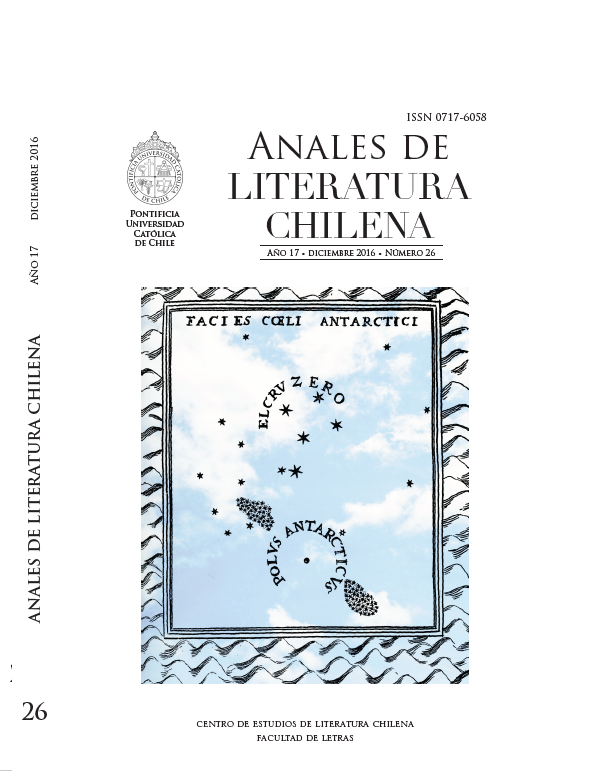Rhetorical ethnography in the indies. The representation of indigenous people in travel narratives of the first half of the 16th century
DOI:
https://doi.org/10.7764/ANALESLITCHI.26.03Keywords:
Travel narratives, origins of ethnography, America, chronicles of the Indies, rhetoricAbstract
While scientiic ethnography emerged in the nineteenth century, the term is commonly used to refer to previously developed knowledge about cultural alterity (“otherness”). It has been noted that understanding such descriptions as ethnography is a mistake due to its deiciency in understanding cultural alterity; instead, it is considered as part of an earlier stage of knowledge prior to ethnography, particularly when
considering texts generated from contact with ethnic groups of the New World. Instead of regarding these kinds of descriptions simply as previous stages of knowledge, our proposal is to consider them as “rhetorical ethnography” given the prevalence of the speech matrix in ethnographic descriptions. Among the diferent kinds of ethnographic writings, we study travel narratives from the “discovery” of the Americas to the mid-sixteenth century, the period in which great discoveries had culminated.
Downloads
Downloads
Published
How to Cite
Issue
Section
License

This work is licensed under a Creative Commons Attribution-NoDerivatives 4.0 International License.


